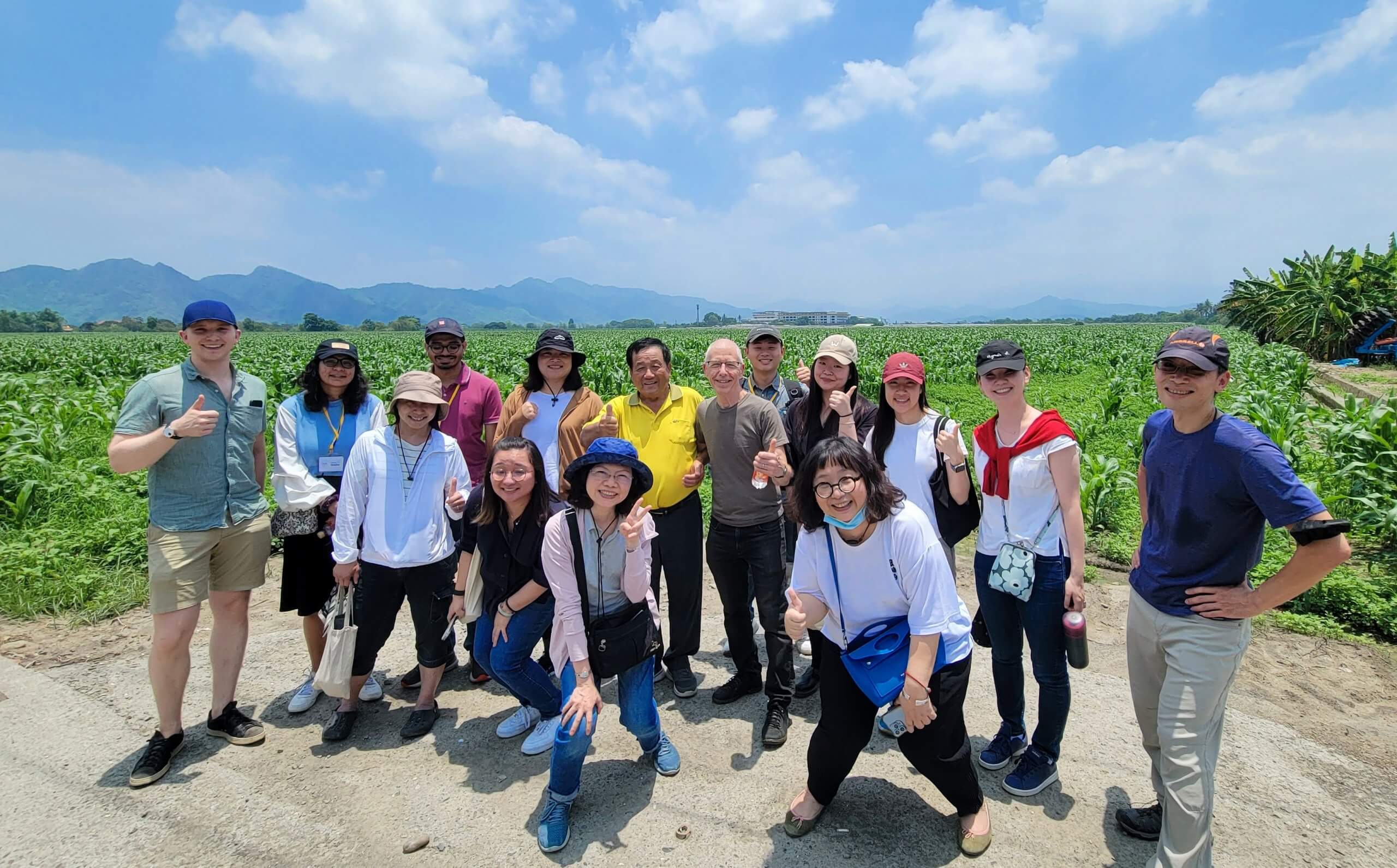
Last summer, a team of ID students traveled to Taiwan for a unique international design experience, resuming the Taiwan Immersion Program after a four-year hiatus caused by the COVID-19 pandemic.
With the guidance of ID Associate Professor Marty Thaler, the six-week project brought together MDes students Ran Konaka (MDes + MBA 2023), Pranjal Shah (MDes 2023), Adelyn Soetyono (MDes + MBA 2023), and Will Rutter (MDes + MBA 2024), as well as two students from Taiwan’s Yuan Ze University—Bruce Liao and Shikha Shalini.
The student designers were enlisted by DRIVE, the internal design team of the Far Eastern Group (FEG), a large, diversified Taiwanese multinational conglomerate. Founded by FEG Chief Innovation Officer Jeff Hsu (MDM 2012), DRIVE has partnered with ID since the inception of the Taiwan Immersion Program, which aims to bring a multidisciplinary perspective to solving problems, enabling students to work closely with the C-suite of large companies and immerse themselves in a new environment. This year’s project focused on the city’super brand, a high-end supermarket chain with stores across Shanghai, Hong Kong, and Taiwan, and was led by Nigel Antony (MDes 2018), senior design strategist at DRIVE.
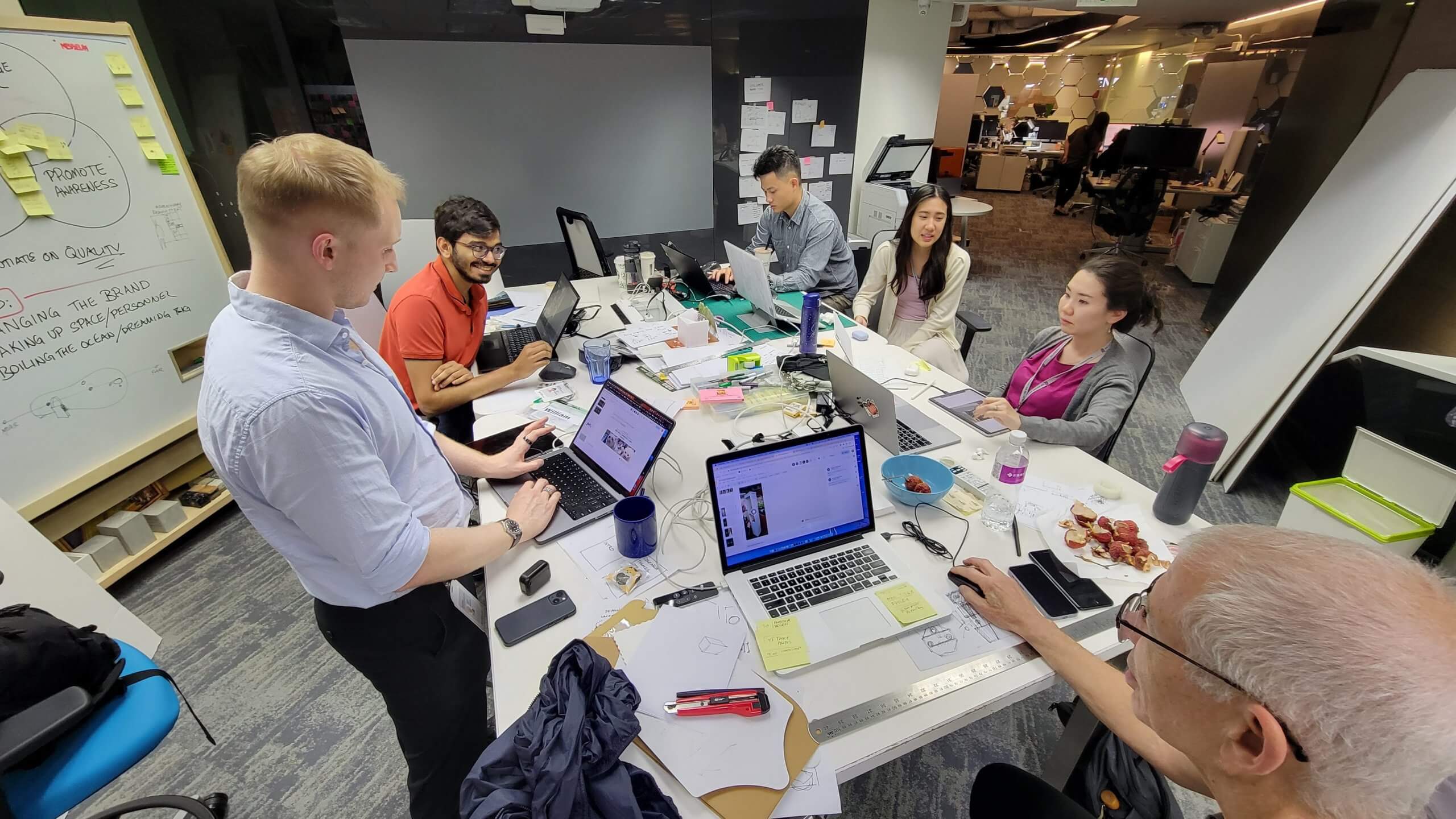
While sustainability has long been a core value for city’super, a recent rise in ESG mandates from the government meant that many of their competitors had been increasing their focus on environmental and social responsibility. city’super enlisted the immersion team to help shoppers make sustainable choices, while also differentiating the brand from competitors, enhancing customer trust and satisfaction, and aligning with the company’s sustainability goals.
To achieve this, the team engaged in an extensive design process. They began their research by visiting farms, distributors, food producers, cooperatives, competitors, and marketplaces spread across four different counties in Taiwan. Through interviews with customers and management, they gained insights into shopper behaviors, needs, and desires. This research led the team to define six opportunity areas under three primary themes of promoting awareness, encouraging local food buying, and creating trust.
Next, the team prototyped concepts to better understand city’super shoppers. Prototype testing revealed that shoppers wanted to be shown:
- A selection of curated products
- The process that makes the products special
- How sustainably they are shopping and how to do more
- Personalized ways to increase sustainability
Concepts
Next, the team developed four concepts, with near-term to long-term implementation options to meet shoppers’ needs.
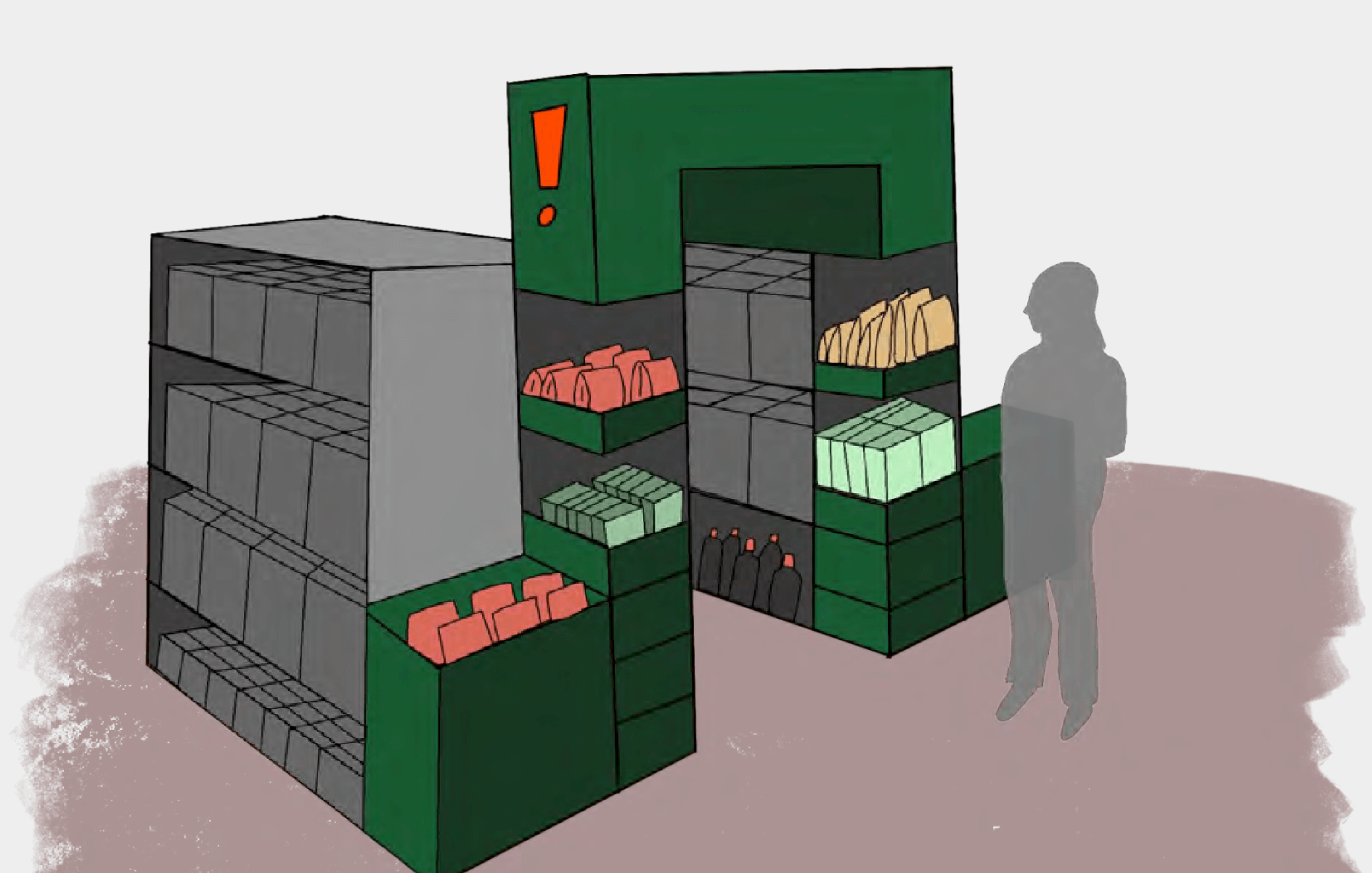
1. Signposting to Champion a Rotating Selection of Curated Products
- Adapt existing point-of-purchase displays to communicate and promote sustainable initiatives and offerings.
- Engage customers through free-standing towers that tell a story about sustainable and local products.
- Highlight sustainable products, produce, and current initiatives through a Gateway to Sustainability.
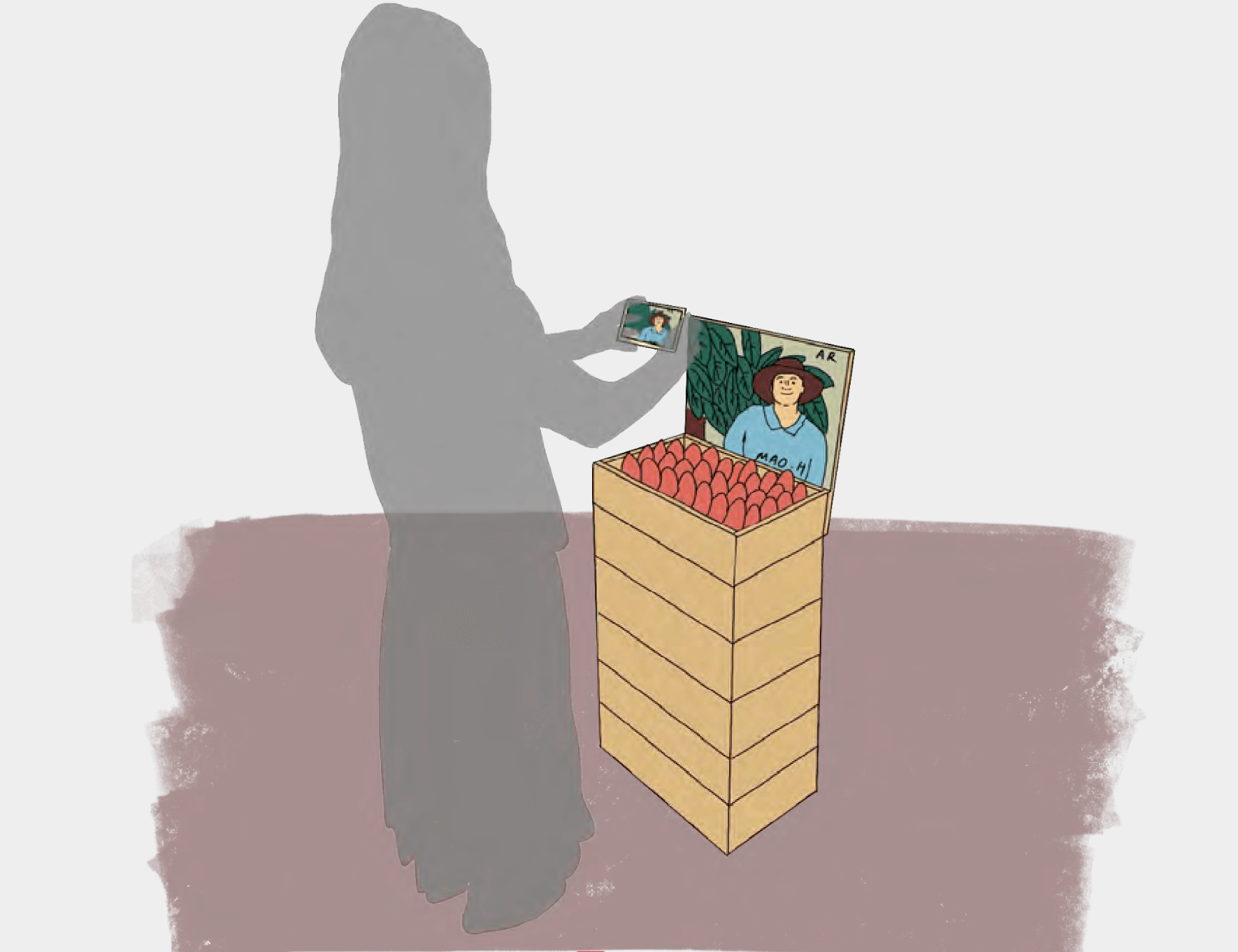
2. Connecting Process and Product Tangibly and Transparently
- Present a farm artifact next to produce from that farm to communicate the sustainability of the farming process.
- Provide shoppers with an in-depth understanding of how the produce was grown through a farm story that describes the farming process.
- Offer a way to learn about the farming process with a farm experience in the form of a short Augmented Reality (AR) video.
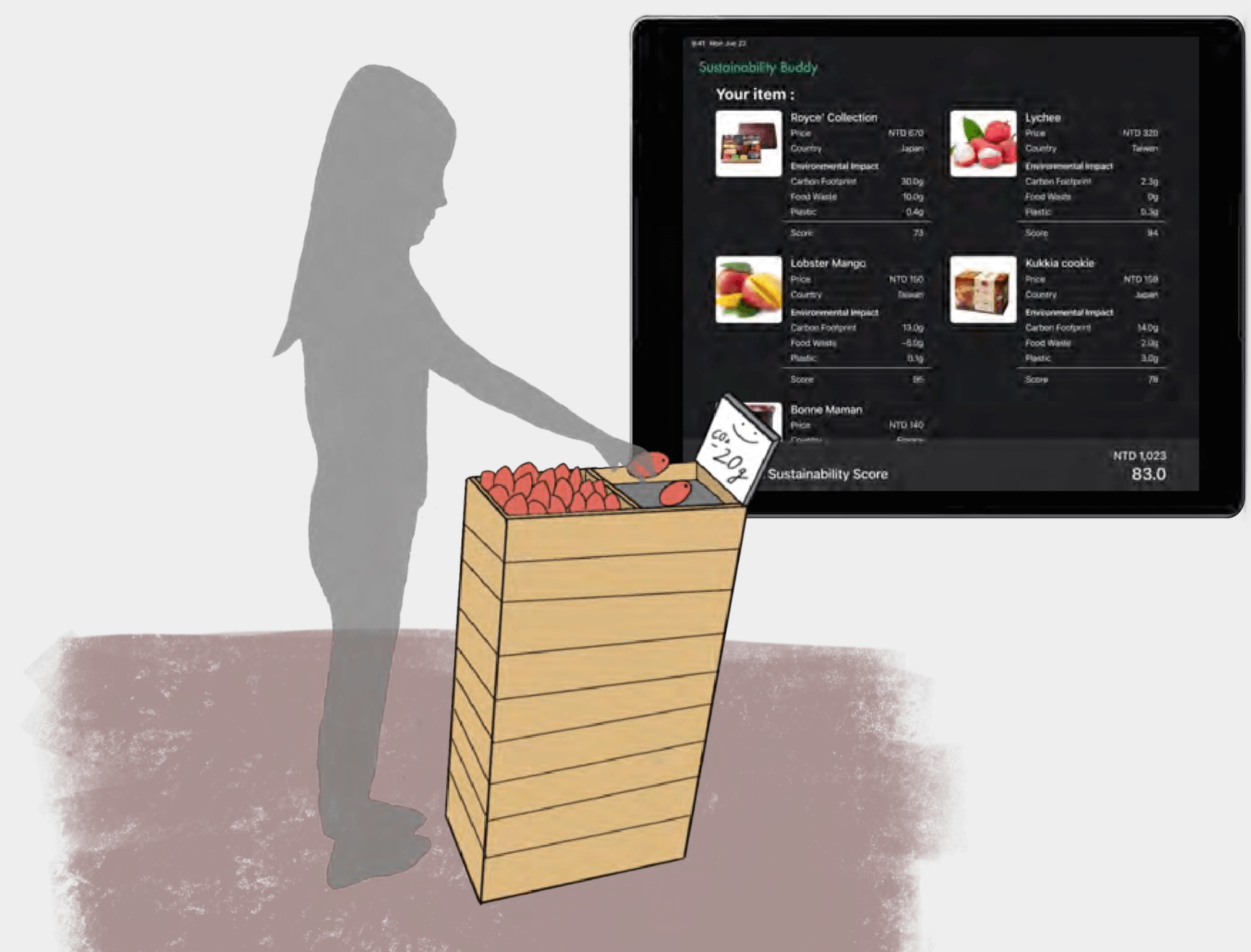
3. Provide Dynamic Feedback to Support Sustainable Shopping Decisions
- Earn sustainability points for shopping sustainably.
- Access sustainability information, such as carbon footprint, by scanning an item with the Sustainability Buddy.
- Reflect shoppers’ sustainability impact at checkout through a score on the mobile app, allowing them to track and improve their personal impact over time.
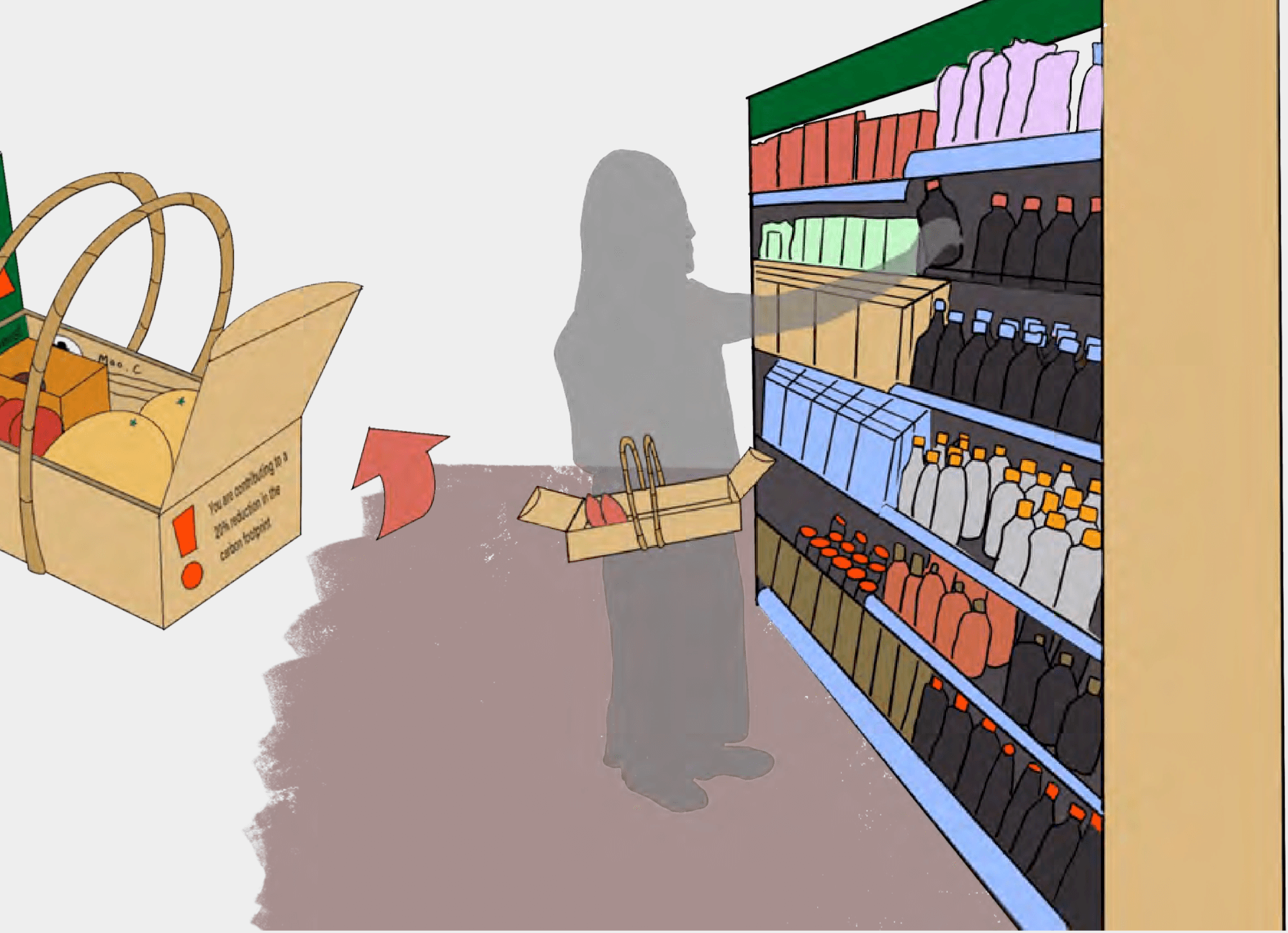
4. Create Occasions for Sharing Sustainability with Friends and Family
- Purchase a selection of foods for personal gift-giving and have them gift-boxed at the service desk in a sustainable gift box.
- Create a personalized and custom gift basket that introduces friends and family to sustainable shopping at city’super.
In addition to the concepts developed, the team crafted a sustainability framework for city’super, providing comprehensive design principles to be carried through project implementation and into future initiatives. They also mapped out an implementation plan, targeting the celebration of the Mid-Autumn Festival with a focus on circularity. Special sustainable zones and mini-zones, along with in-store cooking classes, were proposed to showcase sustainable products and practices.
Through the project, students gained invaluable experience navigating real-world design challenges in a foreign culture with language limitations, all within a short timeframe. This unique experience equipped them with an understanding of effective decision-making, collaboration, and how to give a client more than answers by providing an adaptable process.